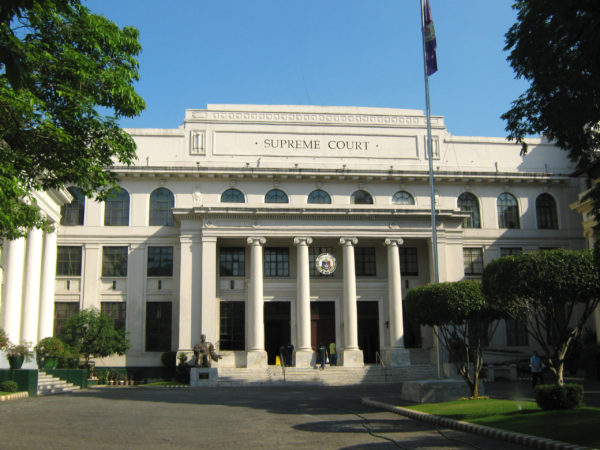THE Supreme Court announced the removal of a municipal trial court judge in Biliran province for conniving with his wife in the illegal procurement of medical supplies for the use of city-run hospitals in Manila during the term of former President and Manila mayor, Joseph Estrada.
In an ‘en banc’ decision originally approved last July 23, 2024 but released only last December 19 (A.M. MTJ-23-017), the Supreme Court found Judge Ateneones S. Bacale, presiding judge of the Municipal Trial Court of Biliran-Cabucgayan, Biliran, guilty of “gross misconduct” resulting to his removal from office and removal of all his benefits, save for his accrued leave benefits and barring him from future employment in any branch of government, including GOCCs (government-owned and controlled corporations).
Bacale was also ordered to explain why he should not be disbarred for violating the Code of Professional Responsibility and Accountability for officers of the court.
Records show that in 2016, Bacale offered pharmaceutical supplier Aldrin Magaoay a project worth P50 million for the supply of medicine to four hospitals in Manila.
Bacale said his wife Romilda, Executive Secretary of then Mayor Joseph Estrada, could facilitate the procurement in Magaoay’s favor without the required bidding process.
But after 3 years and some P20 million later in advances that Magaoay gave to the judge thru bank transfers and personal delivery, Magaoay realized he was being scammed by the couple and decided to file a complaint before the Judicial Integrity Board (JIB) of the Supreme Court.
The SC agreed with the JIB’s decision to dismiss Bacale. It emphasized that judges must follow the highest standards of conduct.
This includes acting in a way that reaffirms public trust in the courts, as stated in the Code’s Canon 2 on Integrity. Judges should also avoid any behavior that could seem improper, as outlined in Canon 4 on Propriety.
“When judges break the law, it reduces public trust in the courts. Judges can be held responsible for gross misconduct if they deliberately do wrong,” the Supreme Court stressed.
Qualified to testify
In a separate ruling released last December 5 (GR 270580), the Supreme Court, thru the ‘ponencia’ of Senior Associate Justice Marvic MVF Leonen, affirmed that persons with ‘intellectual disability’ can be credible witnesses and can testify in court.
The ruling came after Leonen affirmed a ruling by the SC’s Second Division where two suspects, Jose Roel Bragais and Alfredo Tacuyo, were found guilty for the rape-slay in 2011 of a 12-years old girl in Caloocan City.
The two were earlier convicted by the Caloocan Regional Trial Court and the verdict sustained by the Court of Appeals (CA) based on the testimony of Mambo dela Cruz De Lima, who is described by his mother as a “special child” due to his speech impediment and mental incapacity.
